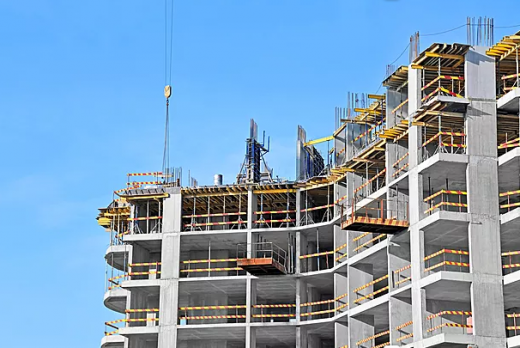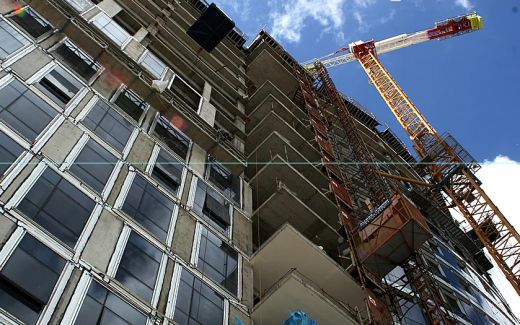NEW BUILD PROPERTY SURVEYS
I DON’T NEED A SURVEY IT’S A ‘NEW’ PROPERTY
I often hear people say “why bother having a survey done on a new property, there’s not going to be any problems and if there is I’ll go back to the builder or rely upon the ‘New Build’ warranty”. 
To a degree that should be true, but what about those builders who may be less helpful or have employed people who aren’t as concerned with the quality of the work they do?
Having worked as a builder for many years before becoming a Chartered Surveyor, I can testify that not all builders work to the specification provided by the Architects, they don’t use the materials they were supposed to, undertake work in poor weather conditions, etc.. The point is, just because the building company may themselves have a good reputation (not all do BTW) that doesn’t mean that those undertaking the work for that company (possibly mostly sub-contractors) will complete the works to that builder’s standards.
What about Building Control I hear you shout, surely they will pick up if the property isn’t built properly?
Building Control’s part in the process is fairly limited, yes in theory they should pick up on the major elements to ensure that these meet the required standards, but that’s not the same as build quality and finish. Furthermore Building Inspectors aren’t on site management every aspect of every build, as such there’s plenty of time for unscrupulous builders to ‘hide’ things from them. The point is, just because a new build has Building Regulation Certification, doesn’t necessarily mean it’s built to the standard you’re expecting.
I’ll use the New Build Warranty if there’s a problem?
The warranty, such as NHBC or similar for instance, may be something that you can rely upon should the need arise however it’s likely that only major elements will be covered.
The point is, just because it’s newly built doesn’t mean it’s built as you expected it would be.
New build warranties, like any insurance policy (which is effectively what such warranties are) have their limitations and are only as useful as the cover they provide. 
For instance an NHBC (Buildmark) warranty has some restrictions and you should familiarise yourself with what is and is not covered before agreement to the purchase.
However even if the warrant covers the defects you are concerned about, you’ll still be the person who has to make a claim, deal with the disturbance (possibly including moving out whilst works are completed) and stress that can go along with such claims. It’s much better, surely, to find out as much as you can before you’re legally committed to purchase?
The ‘snagging list’ will identify defects and I’ll get the builder to fix them?
The snagging list is an important part of the process as a good one will provide you with all the information you need in advance of legal commitment to purchase (if that’s what you’ve agreed with the builder). You might, which is a sensible option, withhold payment of all or part of the purchase price or hold a retention for a period following construction?
The ‘snagging list’ is often however provided by the builder, i.e. the person who built the property and as such you’re effectively relying upon the developer policing themselves. Would you buy a car and rely upon the seller’s mechanic to say it’s okay? I doubt it, yet when it comes to property people often do.
So what should I do then?
A survey completed by a Chartered Surveyor can help provide you the reassurance you need. A Surveyor will provide you with an ‘Independent’ report and can even provide you with a ‘snagging’ list type report if that’s your preference.
You can then use this report to go back to the builder and ask them to rectify defects found and can emphasize that your surveyor is ‘independent’.
In closing then.
Anyone buying a property should ALWAYS commission their own house buyers survey, whether that is a snagging list or homebuyer/condition report. At least that way you can purchase the property safe in the knowledge that you’d done all you could reasonably do to find out the condition of the building, an indeed the surrounding area if you choose the RICS Level 2 Homebuyer Report.
